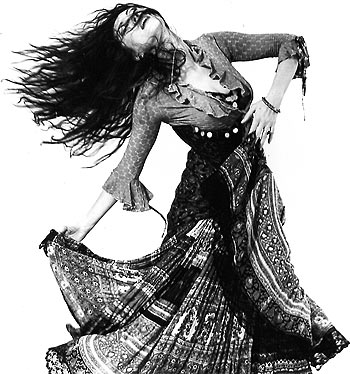Fever and flu over the holiday weekend has slowed my plans to launch a new blog devoted exclusively to my travels. When it is up and running, I will let ya'll know...
In the meantime, the tragic scenes of Mumbai captivated everyone's attention over the holiday, including me. A regular addict of the news, I allowed my little brain to convince itself that if I kept hoping and praying and checking back on the news every 15 minutes, that the hostages at the Chabad House would be freed alive and well. Obviously, I was not the only one paying attention and praying for the ultimate release of lives and good news.
Ironically, I was also grading exams over the weekend while flipping between CNN and the National Geographic Channel. The exams were from the class that I teach on the Israeli-Palestinian conflict from the Palestinian perspective. One question in the exam asked the students to respond to the history and legacy of the Palestinian refugee crisis by pinpointing the events that occurred in the village of Deir Yassin in the early moments of the 1948 crisis. The responses were widely articulate, thoughtful and robust. I took this as a sign that I have been doing my job well. I have been conveying the knowledge of the conflict in a way that illuminates my student's minds and allows them to locate the far-reaching consequences and connections of particular moments in time. Many of their responses moved me. Others surprised me, as they ran with a certain boldness, however shaky, like a wild animal born and touching ground for the first time. It occurred to me that I have planted a certain wildness of thought during my teaching tenure here. I have told the story that no one dares to tell in a world where "all Muslims are terrorists" and on and on...
And yet, while I was grading, a documentary on the Holocaust appeared on the television. The photographic images of Jews being sent to their death at Auschwitz and Birkenau, the personal stories told by survivors, and the reinacted sounds and images of the gas chambers and piles of bodies awaiting cremation forced me to take a moment to consider the pile of papers in my hands. To me, it seemed so dark, sick and ironic that hours of documentaries are devoted to the Nazi genocide of Jews. The story is out there, and told, and mainstream for a captive audience. In all of its ugliness and barbarity, the Holocaust is irrefutable and undeniable. We learn about it in schools, and we'll continue to chew on for centuries, saying things like "never forget" and "never again", even though the targeting of specific ethnic groups based on their particular affiliation continues to persist and "modern" man lives and breathes. But, as Edward Said once asked rhetorically, "Who has the permission to narrarate the Palestinian story?". I certainly didn't laugh at the irony that the story of the great Palestinian exodus is get to be snipped and spliced into the documentary reel for National Geographic or CNN, but I surely noted how the narration of the Holocaust rests in the hands of the many, and yet the narration of the ethnic cleansing campaign of Palestinian Arabs is only most recently written by the hands of just 16 college kids, comfortable and pure of heart, sitting a world away...
In all of this, the news of Mumbai...specifically the targeted killing of internationals, and most specifically, of Jews...reminded me once again of the psychic wound I have always felt when it comes to such things. More specifically, I have read of the amount of torture that the victims at the Chabad House experienced in contrast to the other innocent victims of this attack. According to news sources, the men and women of the Chabad House were rounded up and tortured before being directly killed, simply because of their cultural and religious affiliation. As a result of this, the Israeli press is now referring to the victims as "martyrs".
All of this forced me to think of the once non-violent India of Mahatma Gandhi wonder, "How many martyrs does the world need before it goes blind?" From this, I began to think that maybe blindess may very well be humanity's final option? Perhaps then, will we note that human suffering in the world is not only unjust, but challenges us all to note the injustices that prevail among and within us. May we pray for all of the victims of the Mumbai attacks, as we pray for all of the victims of injustice everywhere.
Monday, December 01, 2008
Subscribe to:
Post Comments (Atom)

No comments:
Post a Comment